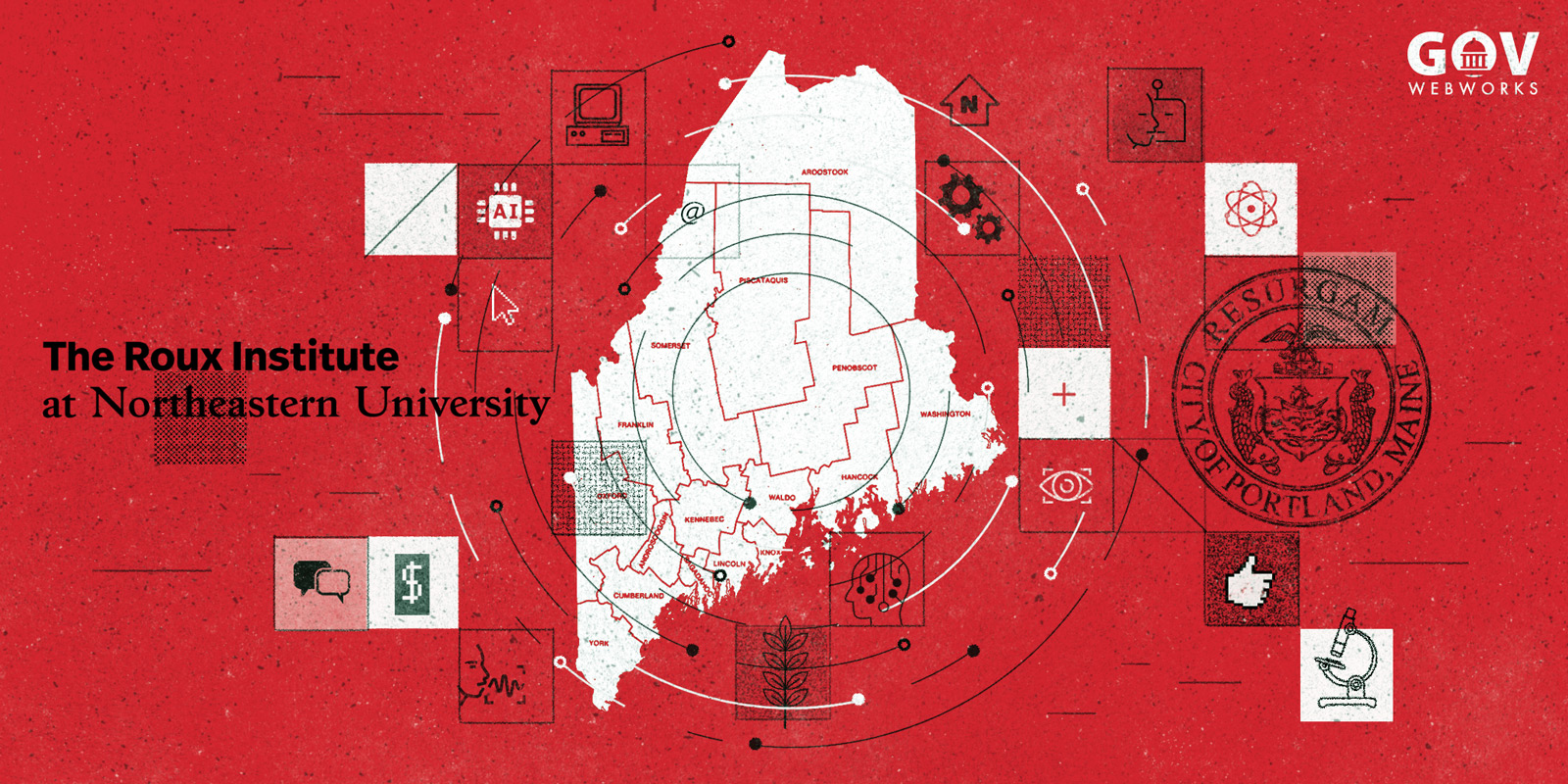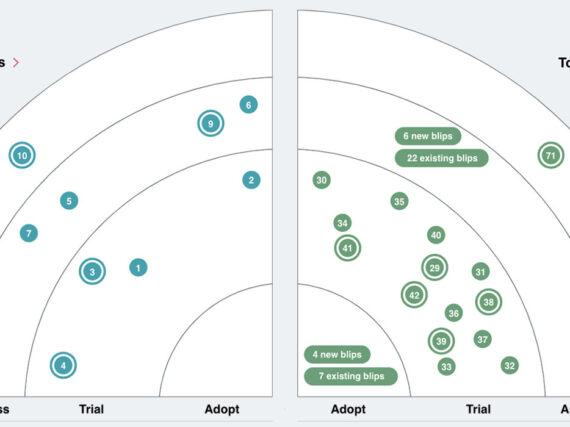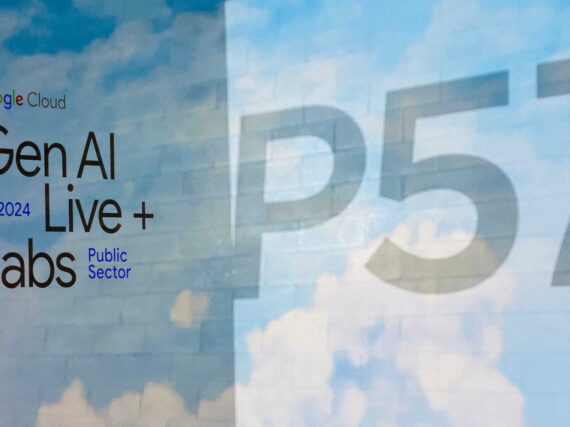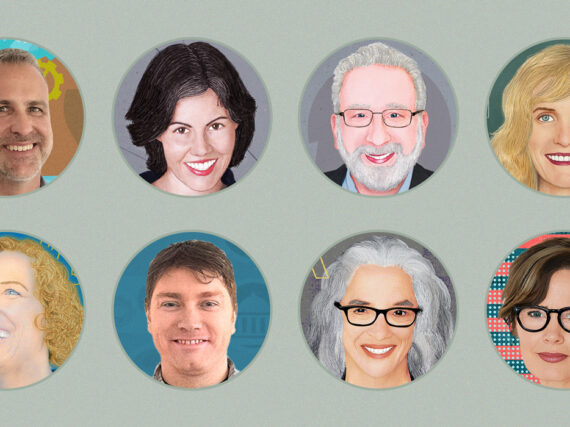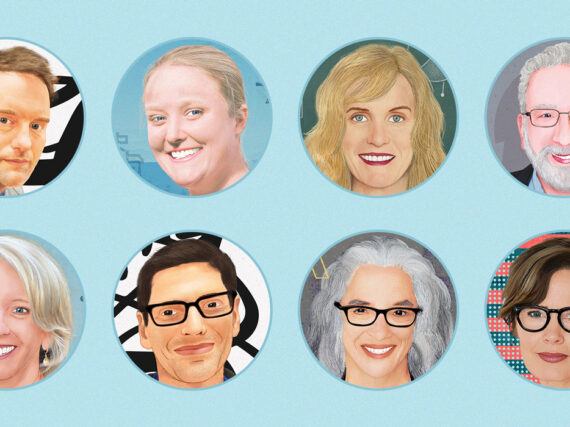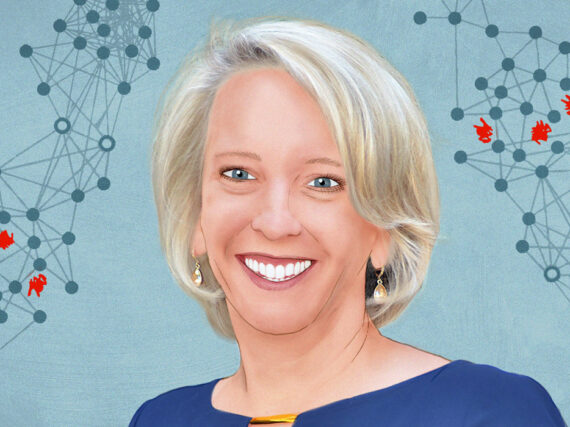Like many smaller states, Maine struggles to develop and retain technology talent. While our hometown of Portland is beloved for its award-winning restaurants, seacoast recreation, and brick-and-cobbles charm, it lacks the technological resources to meet growing demands. Now, with the launch of the Roux Institute, Maine is looking to solve this dilemma.
At the January 27 launch event for the graduate school and research center, the institute’s benefactor, David Roux, a Maine native, explained the formula behind technology hubs like Boston, Seattle, and Austin. They all have at least one great research university, a cluster of innovative organizations, and a bustling high-wage job market, he said.
“Why can’t we do that?” Roux asked the assembled crowd, regarding Portland. “There’s no reason that we shouldn’t be to Boston, what San Jose is to San Francisco.”
Currently, he said, Maine is not fully participating in the innovation economy, partially due to its size and because opportunities are concentrated in a few specific urban areas.
It’s a story that not only smaller states, but employers and employees can relate to as well. What if you can’t find the talent you need, or the jobs you want in your area? In Maine’s case, Roux’s answer was to take action.
Three pillars
“The future,” Roux noted at the launch, “is not going to wait for us.”
To grow its prospects, he said, Maine needed three things of its own: 1. a credible, highly entrepreneurial academic institution, 2. motivated corporate partners, and 3. a pile of money.
And so began Roux’s quest, along with wife, Barbara, “to found an institute, graduate school and research center, designed to bring advanced cutting edge technology capabilities to Maine and northern New England…focused at the pointy edge of the tech spear, which is AI and machine learning.”
The mission? To train the next generation of talent with the skills necessary to participate fully in the innovation economy, he said.
The Rouxs began their quest a few years ago by interviewing more than 12 universities, enlisting a group of 10 corporate co-sponsors as founding partners, and donating $100 million to create that pile of money to get things going.
1. The academic institution
For the educational partner, Roux said they selected Boston’s Northeastern University because of its experience running regional universities in the US, Europe, and Canada, as well as its ability to collaborate with businesses, its strong computing and life science programs, and commitment to affordable and accessible education.
Areas of focus for technology courses offered through Northeastern soon emerged to include fields such as analytics, bioinformatics, genomics, machine learning, and precision medicine.
“We’re building what will be referred to as the Maine model,” said Northeastern President Joseph Aoun at the launch. “With the others we went to a place that already had the ecosystem for tech and research, but here is a place that has the desire to increase what it already has.”
Maine is a location, he suggested, where quality of life can support quality of work. Aoun’s book Robot-Proof: Higher Education in the Age of Artificial Intelligence, details his belief that higher education should focus on what he calls humanics. This framework highlights the development of students’ innate strengths to prepare them to work with smart machines.
“The mission is to educate talent for life,” Aoun explained at the launch. “But what kind of life? A life of fulfillment.”
2. The corporate partners
As might be expected, the Roux Institute was an easy sell for the 10 Maine companies that signed on as corporate co-sponsors, including IDEXX, MaineHealth, WEX, and Tilson Technology.
“We need to offer educational opportunities for our existing employees,” said Josh Broder, CEO of Tilson, during the launch event. Broder noted that some Tilson employees have left to pursue graduate studies in other places, and moved on to jobs in that area. “Now we can provide that opportunity here in Portland.”
Furthermore, “the difference between successful organizations and world class organizations is talent,” said Gimbala Sankare, director of diversity, inclusion and young career talent at WEX, and MC of the launch event. “You build the workforce that you need for your business to grow, not just today, but 10-30 years in the future.”
It fits well with Maine’s Economic Development Strategy, a recently published 10-year plan to help the state attract 75,000 people to the talent pool over the next decade, said Governor Janet Mills at the launch event.
3. The pile of money
As Northeastern President Aoun noted, Maine is a unique location for a satellite campus in that it does not currently have the ecosystem for tech and research. However, it has many other great qualities, as noted by Congresswoman Chellie Pingree.
“We are the center of great food, of incredible beer,” Pingree said. “We have an arts revolution going on here. We’re a place where people can raise their families and be safe, where they can be in the outdoors or on the water in a minute. We’re increasingly a diverse state, and at the same time we still feel like Maine.”
All of these qualities make Maine a great place to live and work, but innovative job opportunities weren’t keeping pace with the other benefits. What Portland needed was a significant investment to bring the future to it.
That’s where the Rouxs come in with their generous donation. It’s a formula that can be replicated in other places. As the New York Times noted in the article, A $100 Million Bet That Vacationland Can Be a Tech Hub, Too:
“If you had 30 to 40 billionaires that decided to do this in 30 to 40 places that had some tech activity,” Mr. Bartik said, “there would be sufficient successes that you could justify it even if only half were successful.”
Of course, pitfalls of such ventures can include unmanaged growth that changes the benefits of smaller cities, as noted in a comment on the New York Times article:
“Portland is a great city and its residents should think hard about what they wish for,” noted Chet of Sanibel, Florida. “Look what’s happening to SF. And there are still some people who remember the Orlando area before it was “blessed” with the arrival of Disney.”
Smart growth
As far as GovWebworks is concerned, the prospect of more talent to fill hiring needs is, of course, welcome. However, we also urge Maine’s leaders to put in place the appropriate checks and balances to assure we maintain our coveted quality of life.
The cities setting the standard for managed growth, such as Arlington, Minneapolis, Saint Paul, and Denver, offer good practices to emulate. If the right steps are taken now, not only will Portland add technology innovation to its list of benefits, but it will also become a model of smart growth.
In the meantime, we encourage forward-thinking job candidates to apply now, and get to Portland first!
Learn more
- Developer Spotlight at GovWebworks, GovWebworks
- Current openings, GovWebworks/Portland Webworks
- Putting Together the Labor Force Puzzle: How Minnesota’s new CareerForce site encourages workforce growth, GovWebworks
- TUNE IN: A major announcement from Northeastern University, Northeastern University Facebook page
